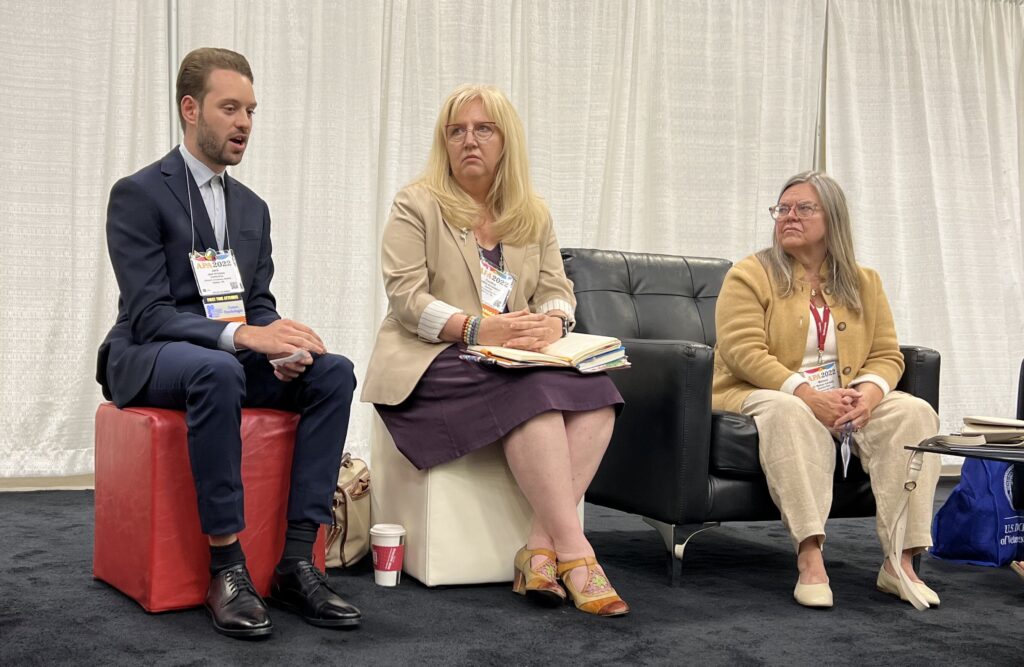Presenters: Jack Krizizke, Dr. Melissa Kennedy, & Cynthia Scheiderer

Summary: The goal of the critical conversation is to unsettle, sit with discomfort, and create space to grapple with questions that are difficult—and also give us hope for change. This kind of space and candid conversation are essential for undoing the legacy of coloniality. We opened with a panel presentation of graduate students, moderated by Dr. Kennedy, reviewed our social locations, and then a outlined the history, legacy, and experience of coloniality. We drew from coloniality’s global history to the present-day scholarly discussion of its presence in the field of psychology. Grounded in this historical perspective, we offered examples of increased awareness of the presence of coloniality in our everyday lives, as well as in our practice of psychology. From this contextual understanding, the conversation turned to the question of what we can do with this knowledge and awareness. As we engage the audience in interactive conversation after our panelists, we drew on discussion prompts from literature, history, and clinical work. We invited participants to explore questions such as: How does the concept of coloniality open up possibilities of change for ourselves and for our field? What would creating and entering into decolonial spaces look like in our own daily lives and in the field of psychology? What possibilities of liberation do we see in such decolonial spaces? At the same time, what ramifications and repercussions might we experience or fear in taking decolonial action? How can we interrogate the dimensions of time and place to distinguish between yet another form of coloniality and decoloniality? Participants were invited to debate, engage, and ponder these questions together.